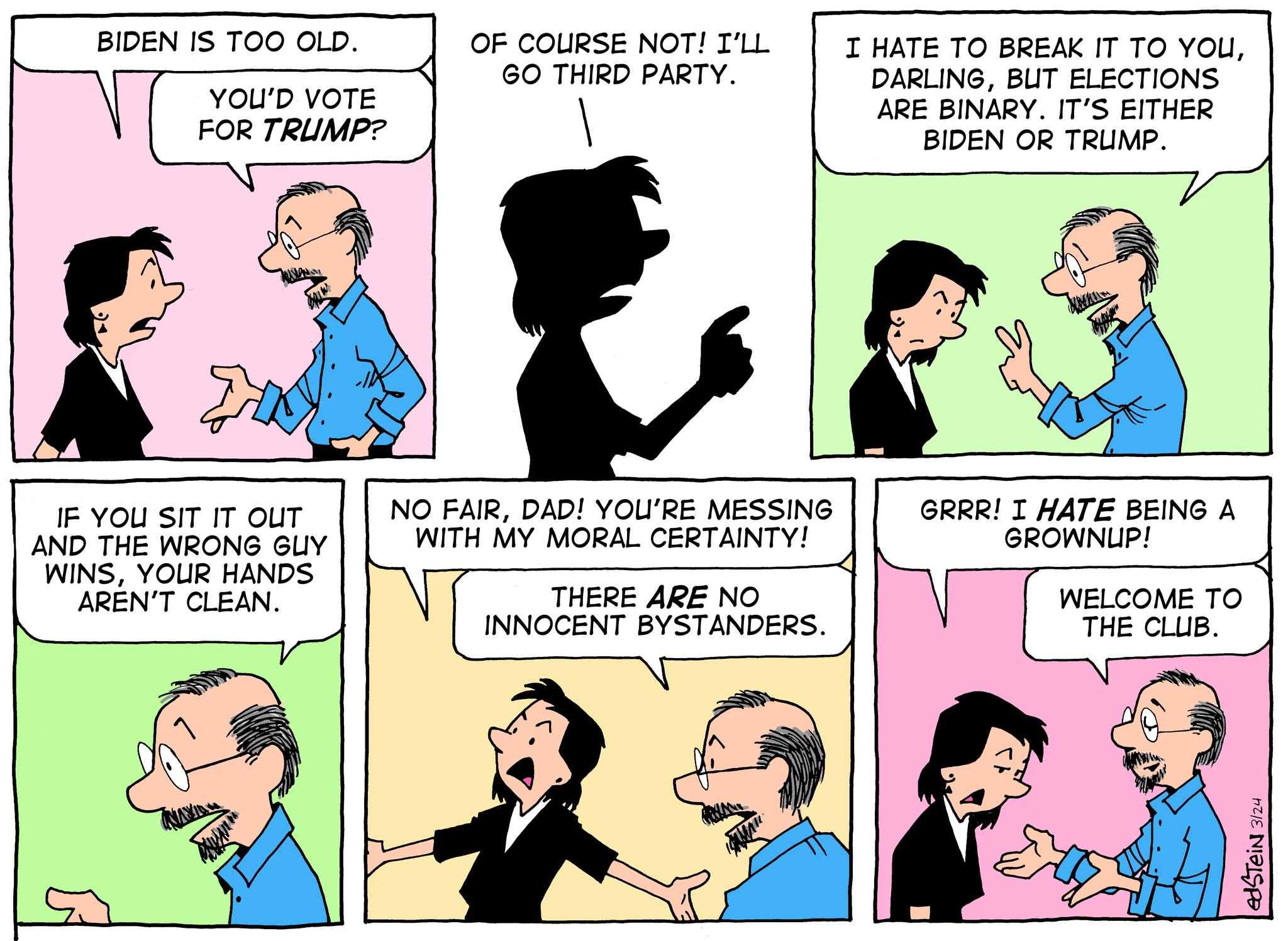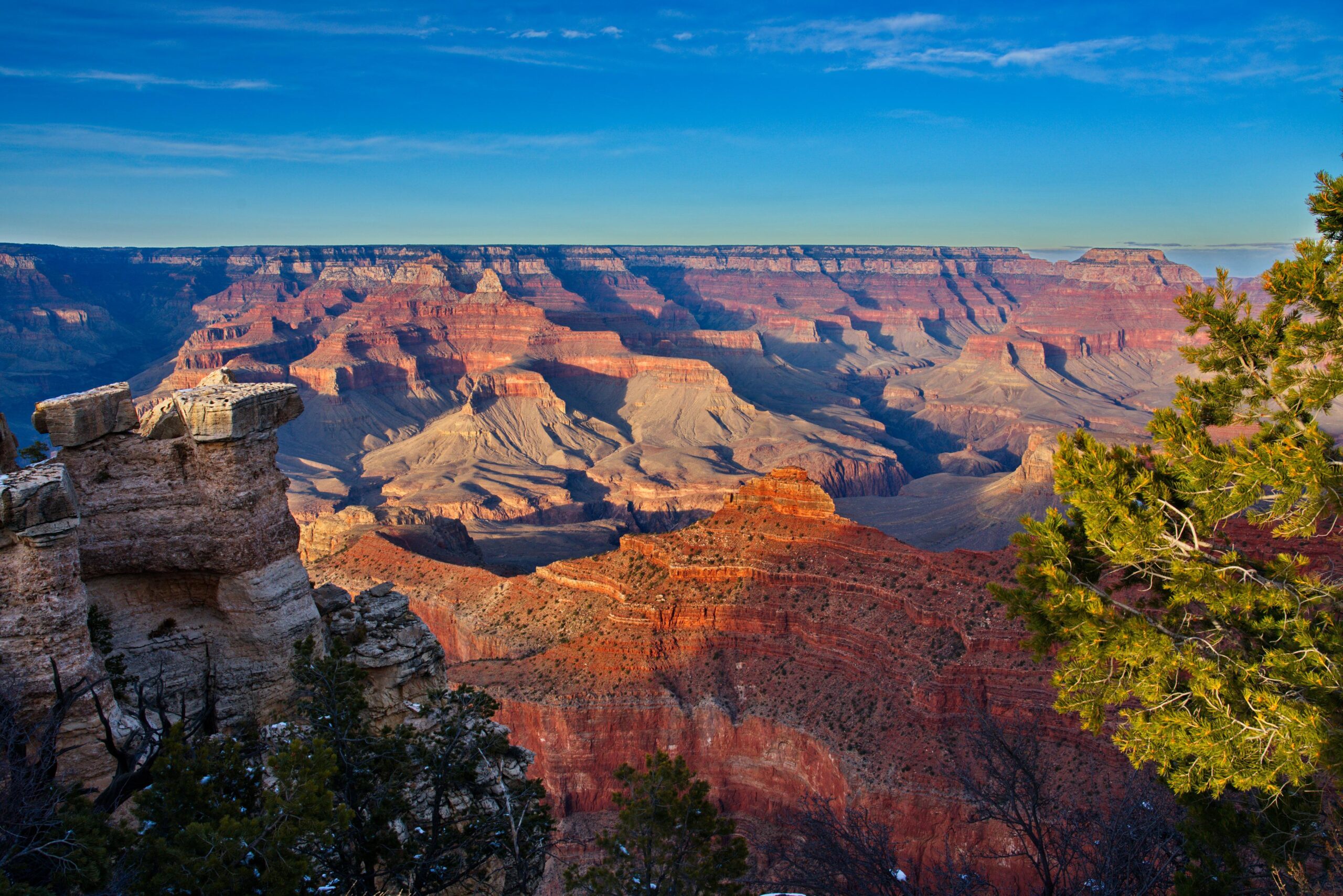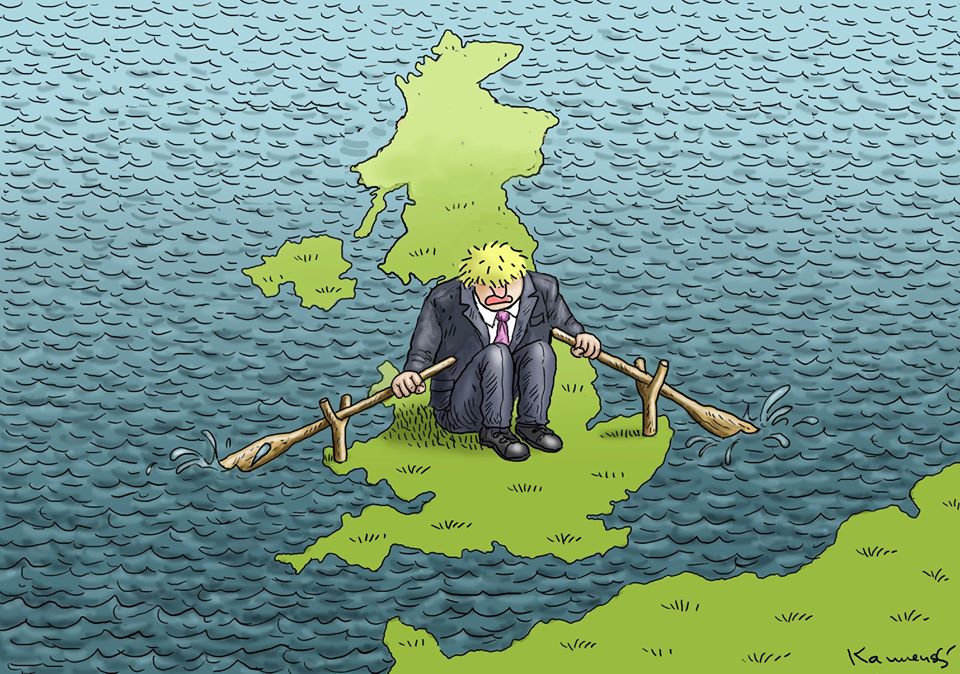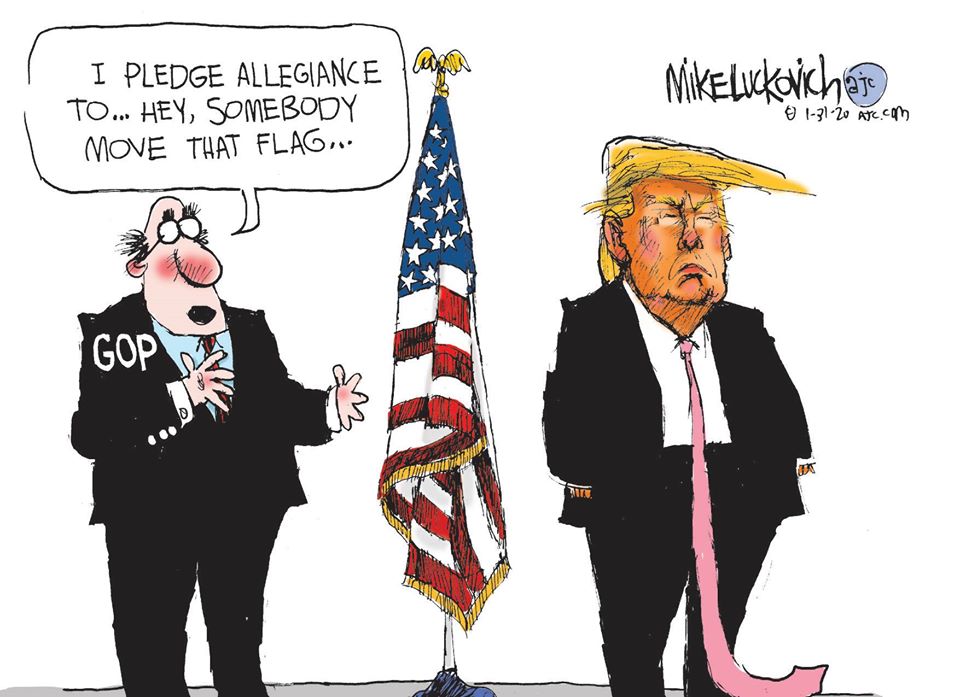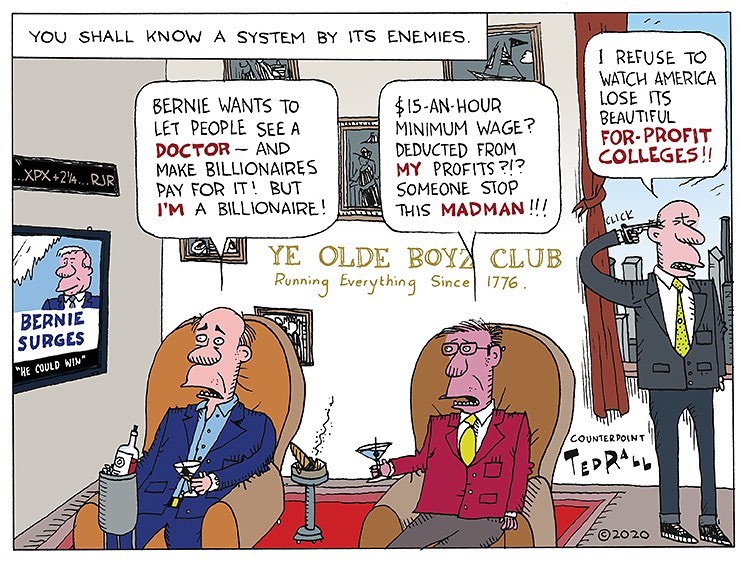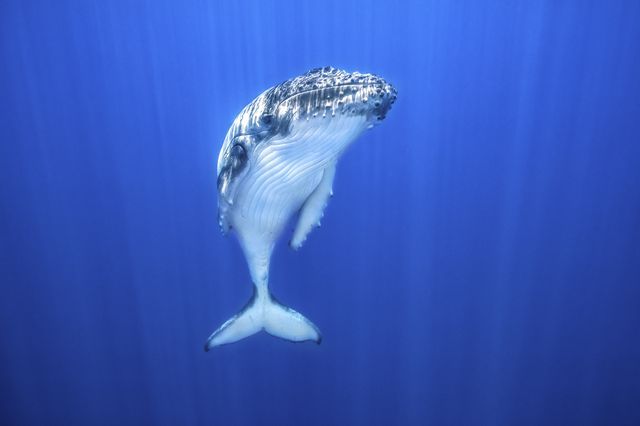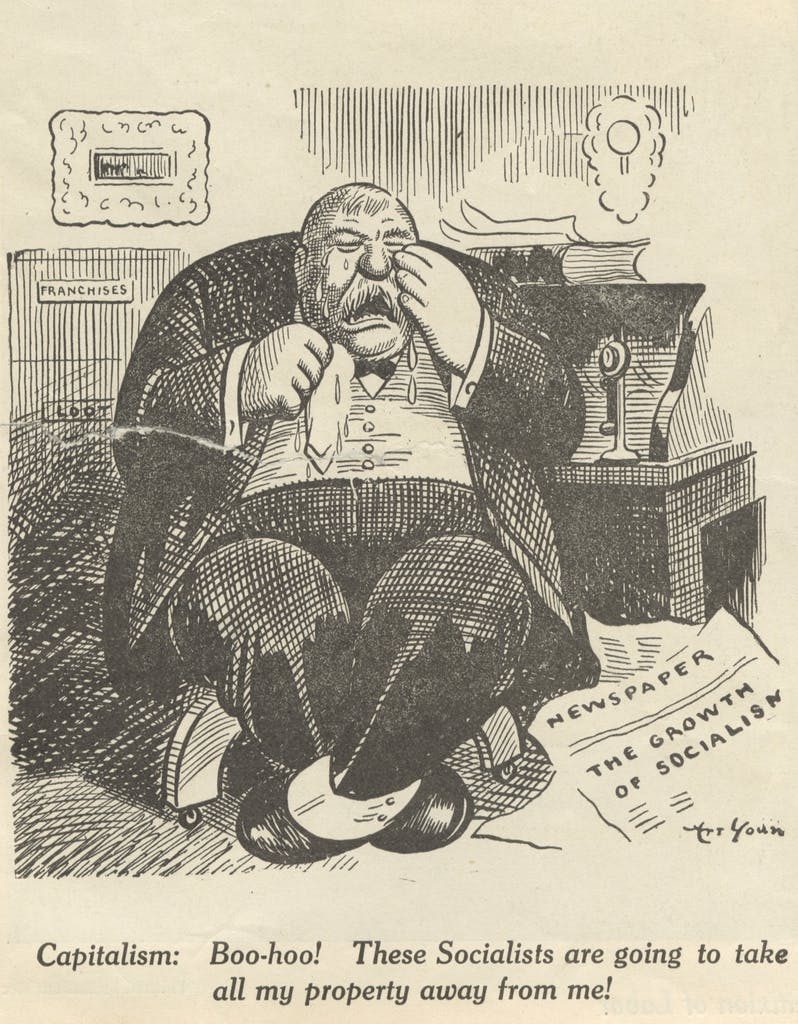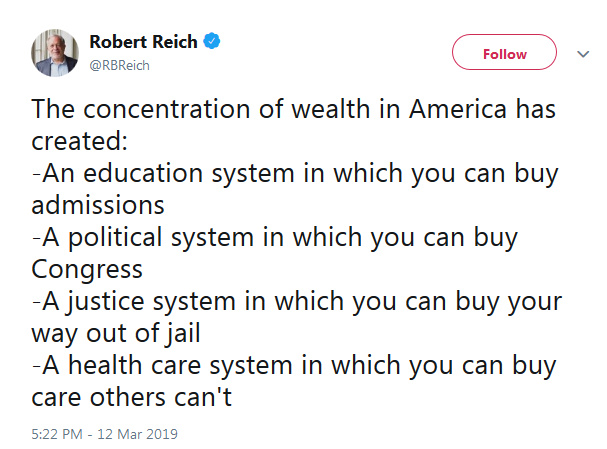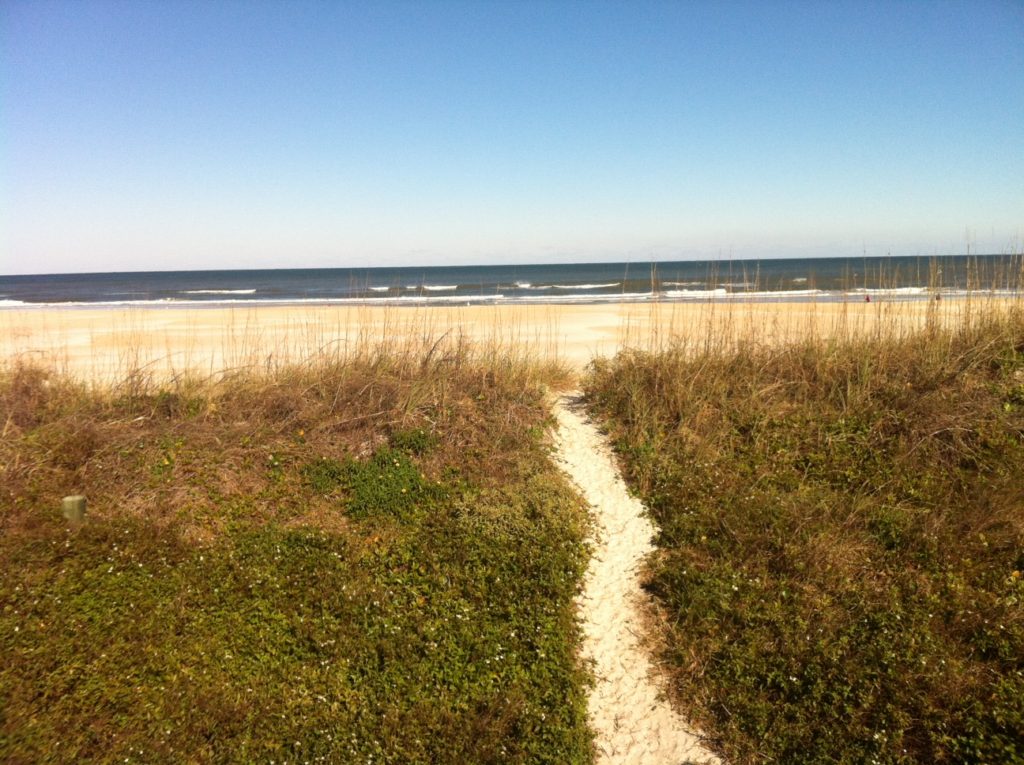The Daily Escape:

Ceanothus, Black Mountain Preserve, San Diego, CA – March 2024 photo by Michelle Duong
Everyone knows about the cargo ship MV Dali that struck the Francis Scott Key Bridge (FSK) in Baltimore, causing it to completely collapse into the frigid Patapsco River. Currently, we know that six people are presumed dead, while two people were recovered alive. Let’s talk about the ways capitalism figures into the FSK bridge collapse.
The BBC reports that:
“The America Pilot’s Association provided details on the ship that crashed into the Baltimore bridge. The association says the ship lost full power, with no lights, no electronics and no engine propulsion, making it essentially a “dead ship” within 20 to 30 seconds. The group says lights came back on in the ship thanks to an emergency generator, but that doesn’t give the engine power. Video shows lights flicker back on briefly before the vessel hits the bridge.”
There are backup generators on ships because power can fail at critical times. In the case of the MV Dali, it has one propeller driven by one engine. The fuel and steering systems of the ship require electricity to function.It is believed that the Dali had 3-4 backup generators, but did they function as designed?
Wrongo knows from his experience with backup generators in the commercial world that they don’t start up instantaneously. It might take them 30-60 seconds to start and longer to come up to full power to restore control of the ship. Without electric power, both the navigation and the steering systems would have been disabled in the critical minutes prior to the collision. No one on the ground in the Port of Baltimore performs testing to see if the MV Dali’s back-up generators are working properly. Why? Because it would be very costly to do.
There are several other factors unique to shipping that will make it difficult for Maryland or US taxpayers to collect enough to cover all of Maryland’s costs from the ownership of the MV Dali. From VOX:
“The Dali was a Singapore-flagged ship, with an all Indian-nationality crew, operated by the Danish company Maersk….”
This organization structure, dividing ownership and operations, is a classic method used in shipping to limit liability when bad things happen, like when your vessel knocks down a bridge in a foreign country.
Cargo ships have become exponentially bigger while US bridges have been aging. When the Francis Scott Key Bridge was being built between 1972 and 1977 the average container ship carried between 500-800 twenty-foot shipping containers (called TEUs). But they ballooned to an average of 4,000 TEUs by 1985. The MV Dali, manufactured in 2015, had a capacity of 10,000 TEUs. According to bridge experts, no bridge pylon could have survived being hit by a vessel of this size.
This continuous upsizing has pitted US ports against each other in order to attract bigger vessels. The 2016 expansion of the Panama Canal caused ports along the US East Coast to dredge their harbors and build higher bridges to accommodate the larger ships now traveling through the Canal.
Back in 2015, Wrongo wrote about the upsizing of US bridges:
“Consider NJ, where, at high tide, 151 feet of empty air lies between the waters of the Kill Van Kull and the deck of the Bayonne Bridge. The Kill, a narrow tidal strait between Staten Island, NY and Bayonne, NJ, is one of the busiest shipping channels in the country. When the Bayonne Bridge opened in 1931,151 feet easily accommodated the world’s largest vessels. But the new ships won’t fit, so, the roadway will be elevated…to 215 feet, more than enough to let these big ships pass underneath. The five-year Bayonne Bridge project costs $1.3 billion.”
This imposed costs on NJ taxpayers beyond what it should have, because then-Gov. Christie (R), signed a bill that ended the collection of any cargo facility charge by the Port Authority of New York and New Jersey. Christie was attempting to offer something to ship owners and operators that would make Bayonne more competitive vs other US ports.
So the taxpayers of NY & NJ not only paid for allowing the bigger Panamax ships under the Bayonne Bridge, but no ocean-going vessel had ANY stake in paying the costs of that bridge expansion. Instead, NJ turned to a “Public-Private Partnership” to finance this project.
The Port of Baltimore also expanded to accommodate supersized ships in 2013, but it didn’t need to raise the height of the FSK bridge. Since then, it has grown into the 9th-busiest port for receiving foreign cargo. The Port of Baltimore is the largest in the US for roll-on/roll-off (Ro-Ro) ships carrying trucks and trailers.
Meanwhile, the FSK bridge has remained largely unchanged since the 1970s. From 1960 to 2015, there were 35 major bridge collapses worldwide due to ship or barge collisions, 18 of which happened in the US.
There are now about thirty ships stranded in the Harbor. They will stay there until the damaged bridge remains are removed from the ship channel. That includes container ships, Ro-Ro ships, and bulk carriers. There are also three US Naval ships stranded there. The collapse is almost sure to create a logistical nightmare for months, if not years along the East Coast. The accident will also snarl cargo and commuter traffic.
And who will pay the costs to repair the bridge, or compensate the people who died, or cover the lost revenues for the many years it will take to rebuild the bridge? Or the tax receipts that Baltimore won’t be in a position to charge while the port is closed?
According to Business Insider, the majority of the financial fallout is likely to lay primarily with the insurance industry:
“Industry experts told the FT that insurers could pay out losses for bridge damage, port disruption, and any loss of life. The collapse could drive “one of the largest claims ever to hit the marine (re)insurance market…”
The Dali is covered by the Britannia Steam Ship Insurance Association Ltd., known as Britannia P&I Club, according to S&P Global Market Intelligence. Britannia is one of 12 mutual insurers included in the International Group of P&I Clubs, which maintains more than $3 billion of reinsurance cover. Although the ship’s owner and it’s operator have insurance, their policies will in no way cover the all-in costs of this event.
Some are saying that this is a “black Swan” event. But this is almost certainly the result of operational pressure for more containers, faster turnaround, and more profit. The ship owners have traded reliability for economy. Unless we force the container trade to transition to more reliable and more costly vessels, we’ll continue to see events like this every few years.
That’s the price of cheap goods in our stores and of the profits it generates for ship owners.
Once again, the losses will be socialized, and the US taxpayer will be gouged again, all in service to our capitalist overlords who will laugh all the way to the bank. Wrongo certainly isn’t a Marxist, but Marx was absolutely right when he said that capitalism contained the seeds of its own destruction.
Why is it that no legislator is willing to consider the costs of externalities (a cost that is caused by one party but financially incurred by another) to its taxpayers when they approve partnering with big industry?
Are the tax revenues in Baltimore going to be enough to cover the costs to all US taxpayers when the US government rebuilds the FSK bridge? They will not. You know they’ll be minuscule compared to the real costs.
And the big shipping players will sail off towards the horizon with hardly a financial scratch.


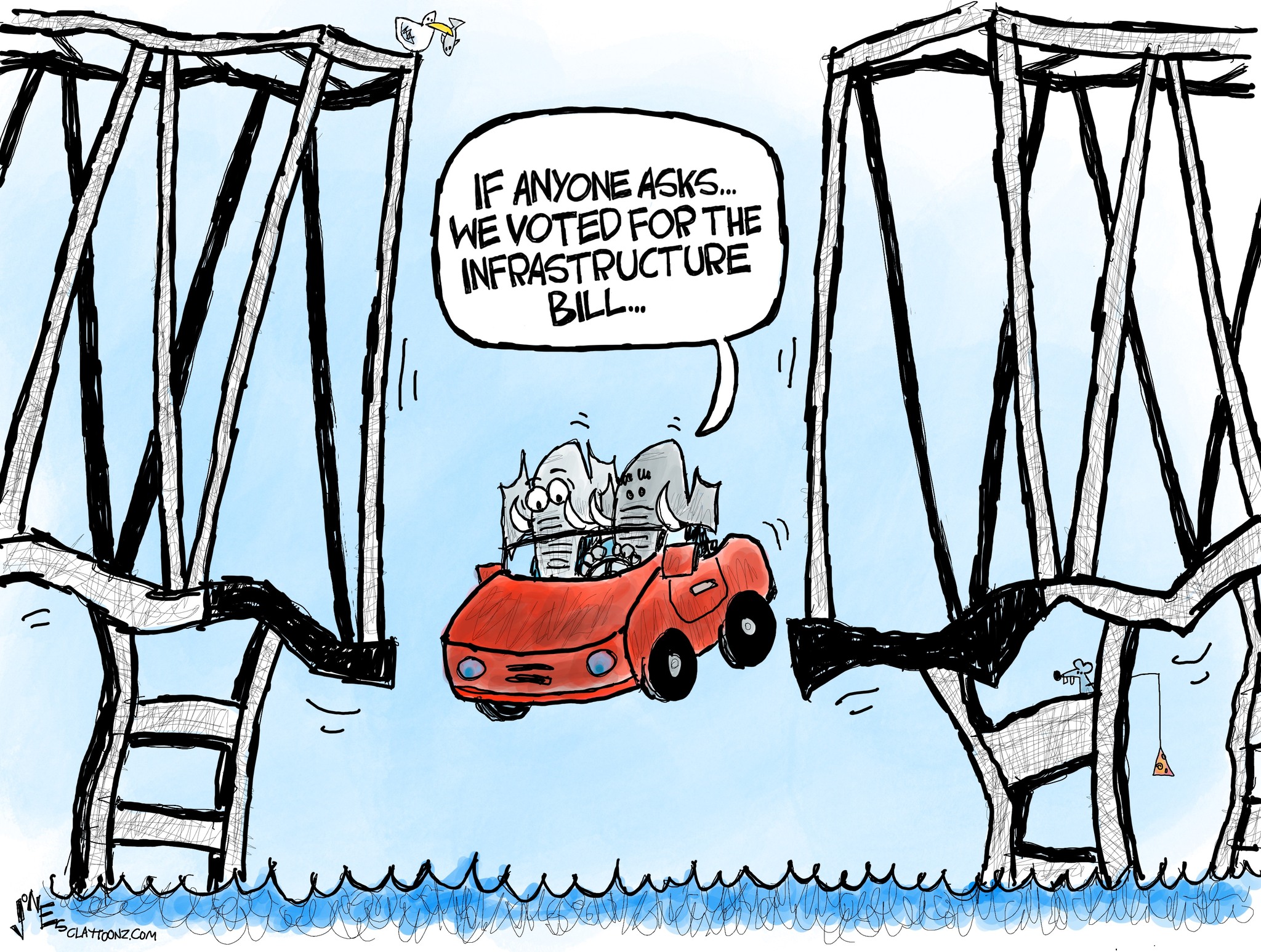
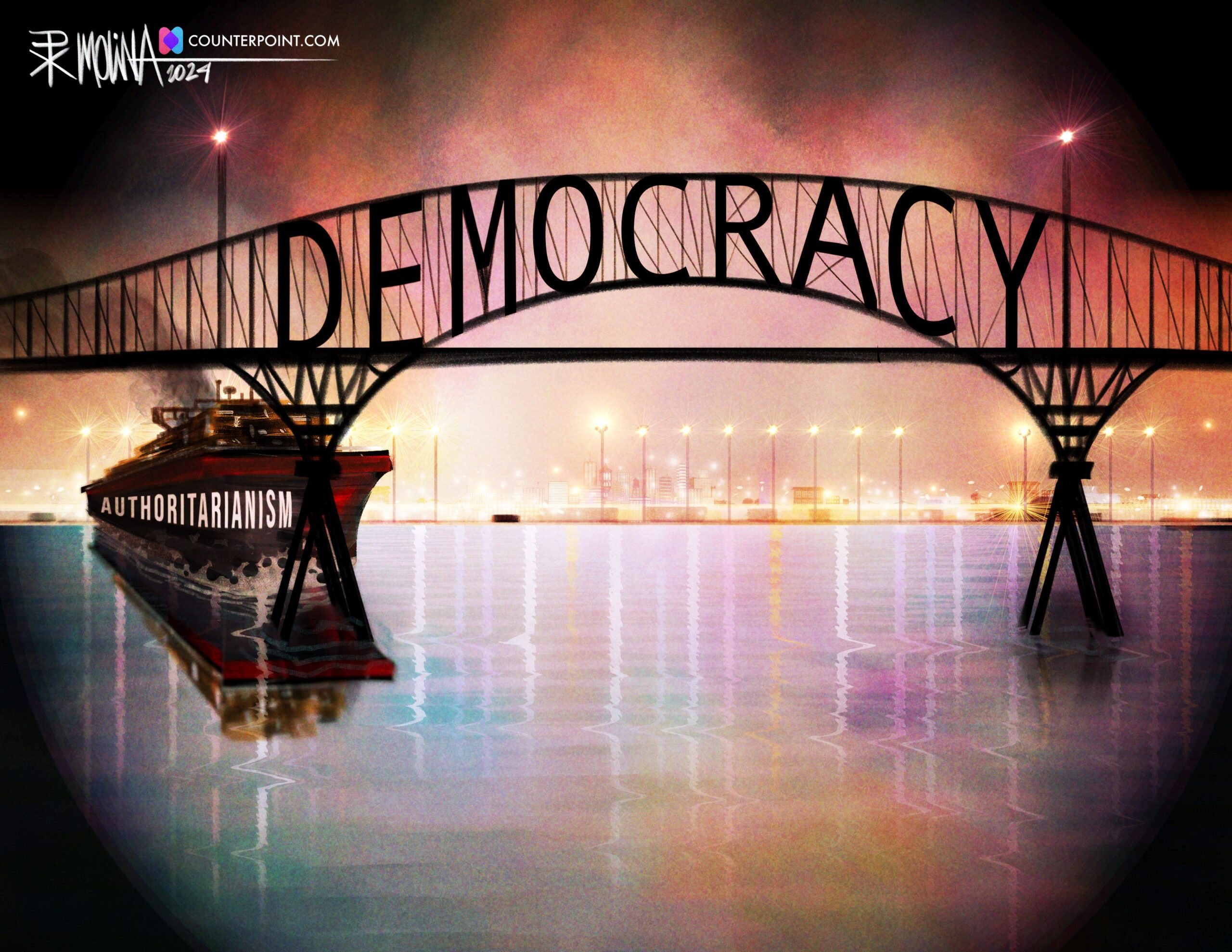


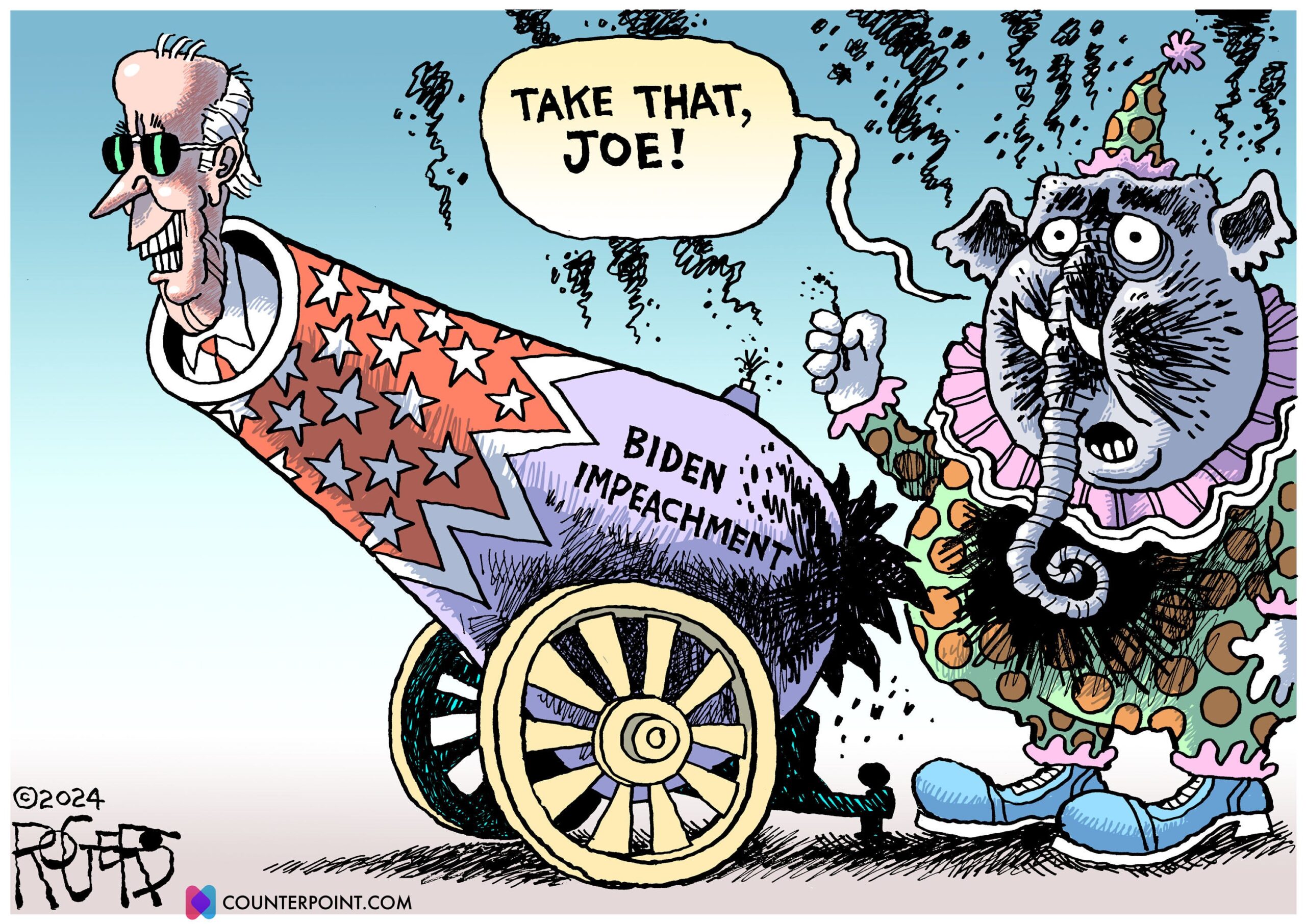 Suck it up, buttercup:
Suck it up, buttercup: